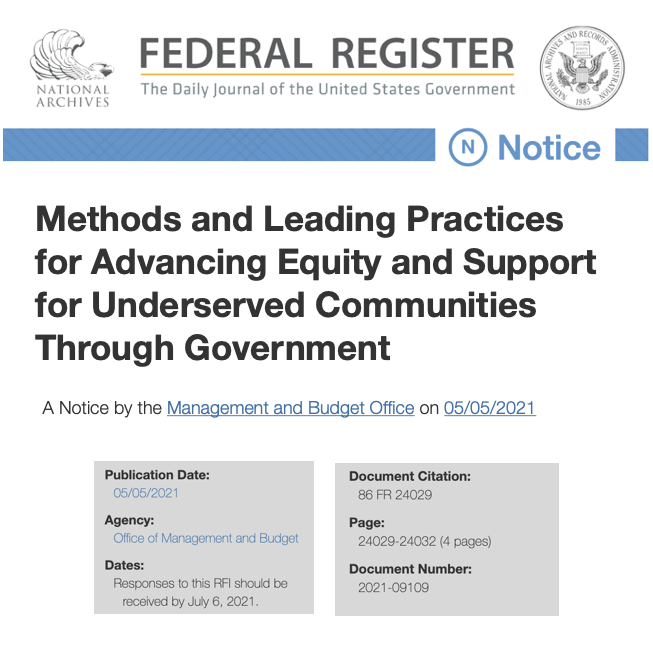
What OMB can learn from Congressional caseworkers on advancing equity and support for underserved communities through government
Congressional offices — especially district offices and the insight of those staffers with casework responsibilities — are an underutilized source of insight for the improvement of federal processes. In this response to OMB’s Equity RFI, we discuss with several caseworkers what OMB can learn from their work, and provide recommendations.

Expand existing “customer experience” (CX) efforts to include “civic experience” (CivX) principles
In recent years, the Federal Government has prioritized customer experience (“CX”) metrics for public-facing services. The narrow construct of “citizen as customer,” however, can have detrimental effects on the advancement of equity in governing processes. This submission describes the growth of CX practices within the Federal Government and how a narrow CX focus can negatively impact equity. We then offer recommendations to help OMB guide agencies toward more inclusive engagement metrics like civic knowledge, public trust, and political efficacy in addition to conventional “customer experience” measures.

Assessing Member Office Implementation and Uptake of Member Directed Spending Programs, AKA “Earmarks” (Thus Far)
Over the past several months, we took a look at how Members messaged reinstated Member-directed spending (aka ‘earmark’) programs to their constituents, how they publicly indicated an intention to participate, and what lessons can be learned about the new program thus far.

NEW REPORT: How Deliberative Forums Could Improve Constituent Engagement in Congress
We worked with one Member of Congress and their staff to conduct a week-long, online, asynchronous, policy forum between the Member and a representative sample of their constituency. The goal of this forum was to pilot a new way for Members of Congress to interact with constituents using qualities found in deliberative democracies around the globe. Our new report highlights important findings from this experiment.

House vs. Senate Member-Directed Spending
Both the House and Senate have reinstated Member-Directed Spending programs (formerly known as ‘earmarks’) this year, but there are some significant differences between the chambers. Below, we’ve provided some comparison, including differences between which eligible accounts are accepting Member-Directed Spending requests in both chambers. Resolving how to handle asymmetrical eligible accounts will happen in Conference after the House and Senate Appropriations Committees have both passed spending bills.
